John Cleese enjoys tough questions. He’s currently touring America with An Evening with the Late John Cleese, and a substantial part of the show is thrown open to the audience. He tells me that when someone asks a particularly rude question — such as “Why can’t you stay married?” — it simply adds to the fun. Another one of his favorites is “What’s the worst film you ever made?”
I ask him the same question. “Well, there are a lot of contenders,” John says. Apparently his “saber-toothed daughter” Camilla might have the answer, because she often introduces him to the stage as “the star of The Pink Panther 2.” When I tell John that I haven’t had the pleasure of seeing it, he offers me some succinct advice: “Don’t.”
For the past eight months, I’ve been working with John as executive producer on a new discussion show for GB News called The Dinosaur Hour. “They gave me the best offer that anyone has ever been given in the history of television. They said to me, ‘Would you like to make ten one-hour programs, and do whatever you like?’ And they haven’t interfered at all.”
He explains that the process has reminded him of working on Monty Python’s Flying Circus. “The BBC just let us get on with it, because it was so cheap and it went out so late. Except when they were putting out the Horse of the Year Show instead, which they did quite a lot at the start. They didn’t bother to watch it, so there was no supervision. And it wasn’t because they were enlightened — it’s because we were not important.”
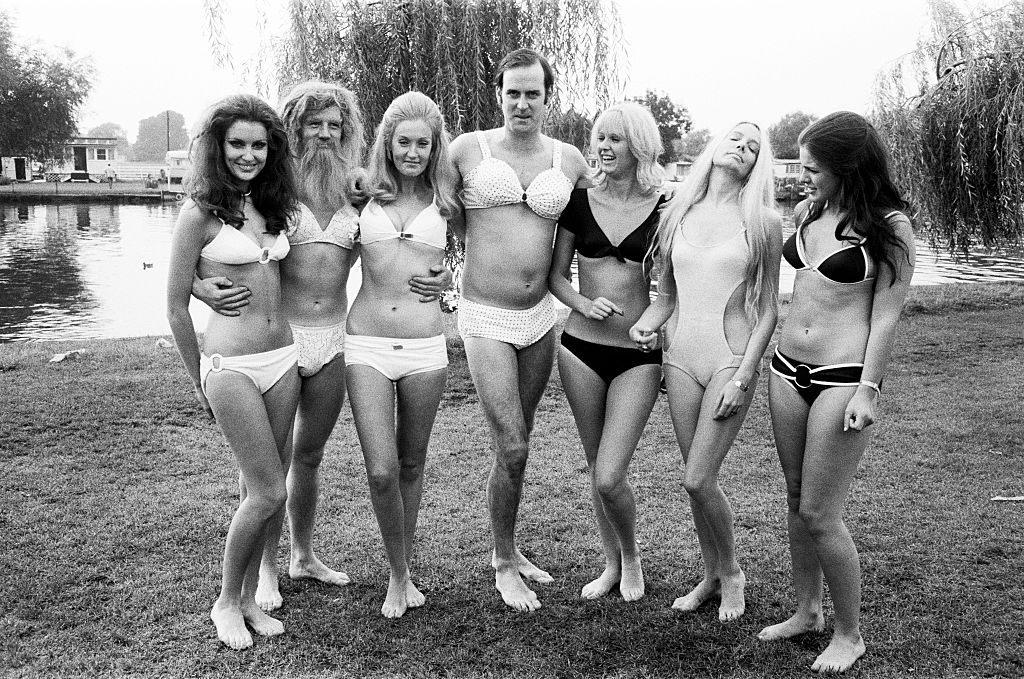
The Dinosaur Hour was filmed in a 12th-century Norman keep, and we populated the space with nuns, businessmen, a Hungarian Hussar and a clowder of roaming cats. Each episode has a theme, or sometimes — as in the case of John’s interview with Stephen Fry — it’s simply an hour-long free-flowing conversation. Although television executives these days seem to be convinced that viewers have short attention spans, John is quick to point out that the success of the podcast format disproves this notion.
“It suits my style,” he says. “My friend [Times columnist] Matthew Syed says that I’m odd because I connect ideas from very different fields in a way that most people don’t. And I think that’s because I don’t know a great deal about anything in particular. One American friend called me a generalist and I thought that was a very nice way of describing it.”
“A dilettante?” I suggest.
“I used to think that England was not a corrupt country… now I think it’s as corrupt as most parts of Europe”
“Yes,” he says laughing. “I’m a terrible dilettante. But it has its advantages.”
Although meddlesome executives are a particular bugbear for John, he reserves most of his contempt for unscrupulous journalists. “When I was first becoming famous in 1966 the press was quite different,” he says. “If they made a mistake they were embarrassed. But now I would say most of them don’t give a damn.”
He offers the example of the recent claim — one repeated in multiple media outlets — that his new stage version of Monty Python’s Life of Brian would not include the famous scene where Stan, a member of the “People’s Front of Judea,” declares that he wants to be a woman and have babies. At a live show in Guildford, John had mentioned to the audience that at a reading of the script in New York the actors had objected to the scene on the grounds that it was transphobic. “But I never said I was taking it out of the show,” he tells me. “And suddenly there were debates on television about it.” He quotes the old journalism maxim about “a story too good to check.” “I know that it was a joke but there’s a lot of truth in that.”
He continues: “I remember being interviewed by the Observer in 1966, and the writer had said that my father had been in the church, which is terribly funny and quite incorrect. But she’d misread her shorthand — ‘in the church’ is apparently very close to ‘in insurance.’ She apologized and it didn’t matter. Nowadays, you can’t get them to correct anything because it shows weakness. And then other people will want corrections and readers will start realizing how many mistakes they make and how much of the information is unreliable. I think that’s why they’re so terrified of Leveson.”
John is well known for his support of the recommendations of the Leveson Inquiry, a British judicial public inquiry into the practices of the national press. I ask him about the possibility that wealthy people could exploit press regulation to silence their critics. “I’m talking about the correction of factual mistakes,” he says. “Not opinions, but factual mistakes. They should print the correction in the same size and prominence as the original story. That’s totally fair.”

It’s clear from talking to John that his views on journalistic integrity are connected to his feeling that truth is essential for the preservation of a functioning society. “You can’t run a democracy unless there’s accurate information out there,” he explains. “What you have now is a lot of powerful people in charge, using the media to elect governments that will protect the interests of very rich people. And there are a lot of Tories who have been engaged in corruption. I used to think that England was not a corrupt country, and now I think it’s pretty much as corrupt as most parts of Europe. After all, we were the no. 1 center for laundering Russian money. You proud of that?”
So does John feel more European than British? “It’s a very interesting question. I do feel very European. In fact, the most satisfactory thing this year was the way the Europeans stuffed the Americans in the Ryder Cup. I also feel hugely attached to the parts of England that I still think are rather splendid. Our sports teams, and especially women’s football teams. I think the one undeniably good thing that’s happened in my lifetime is that women have started to take the equal place that they should have always had. I’m very proud of that.”
It strikes me that so many of John’s views are underpinned by the traditionally English virtue of fair play. I recall that while filming one of the episodes of The Dinosaur Hour, John was visibly moved when Matthew Syed expressed his view that Britain was one of the best countries in the world when it comes to race relations.
“I was really pleased to hear that,” John says. “Because I always wanted England to be a very decent place. Looking after people, creating the right atmosphere of creativity, the old English thing about tolerance. The historians used to say that the English had a genius for compromise, which is what civilization is all about. And none of it is true any more. For the first time ever, I could take on another nationality, but only if the Tories got re-elected. Because I think we’re finished.”
I wonder out loud whether this is an example of how most of us resent change as we get older. “It depends what sort of change,” he retorts. “If you were in Germany in 1933, would you have said ‘Well, change is always good?’”
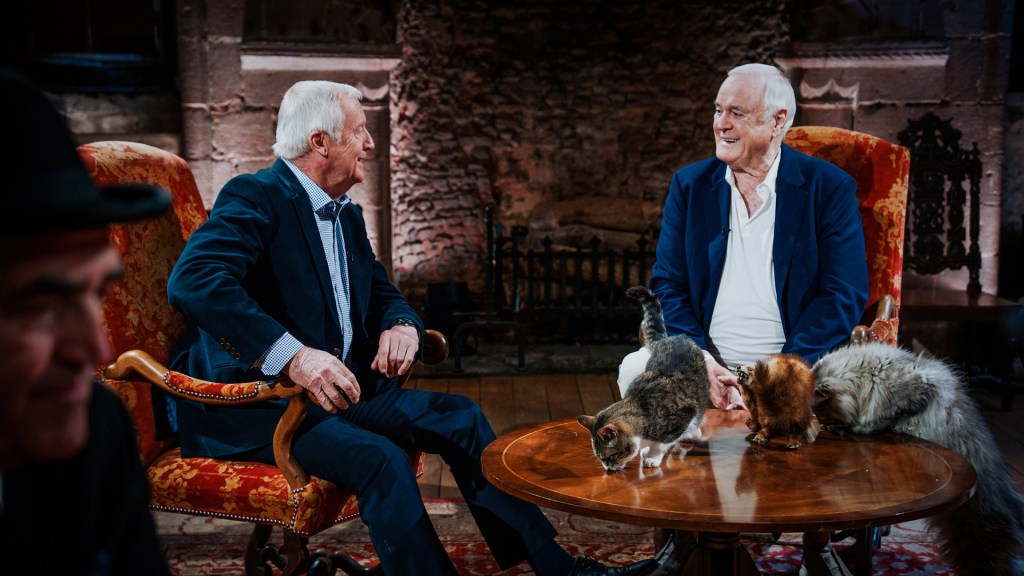
John Cleese has just turned eighty-four, but he shows no signs of slowing down. He’s written a new film with his daughter Camilla about Hollywood lookalikes, and they’re also hoping to collaborate on a series about Basil Fawlty in retirement, possibly set in a hotel on a Caribbean island. In addition to the Life of Brian stage play, John has been working on a musical adaptation of his 1988 movie A Fish Called Wanda. “It’s like you don’t stop,” I say.
“The genuine reason is financial,” he says, explaining that his fortunes took a bad hit after his third divorce and the subsequent settlement of $20 million. “I’d like to buy a place in the sun before I die. Or at least a place in the sun where I could be buried. There are a whole lot of things I’d like to be doing — reading, writing and thinking about — and you can’t really do it when you’re busy doing interviews to sell tickets.”
Even so, John’s fans will be relieved that he’s not retiring any time soon. “I’ve realized in the last nine years that comedy is much more important than I ever thought,” he says. “It changes people. So many come up to me now with a tear in their eye saying, ‘Thank you for making me laugh all these years.’ Or they say, ‘Thank you for helping me through the difficult periods of my life.’ That kind of thing is very touching. You suddenly realize that people can have a rotten day at the office, come back home and put on an episode of Fawlty Towers, and once it’s finished they can have a nice evening. So perhaps I should call myself a comedy therapist.”
As for John’s detractors, he appears to bear them little ill-will. One of the advantages of such an immense legacy is that it is unlikely to be corroded by a few ungenerous reviews. He recalls with a smile one critic writing a piece that posed the question of whether Monty Python was ever really funny. “To which I think the only answer is — a lot of people thought so.”
This article was originally published in The Spectator’s UK magazine. Subscribe to the World edition here.



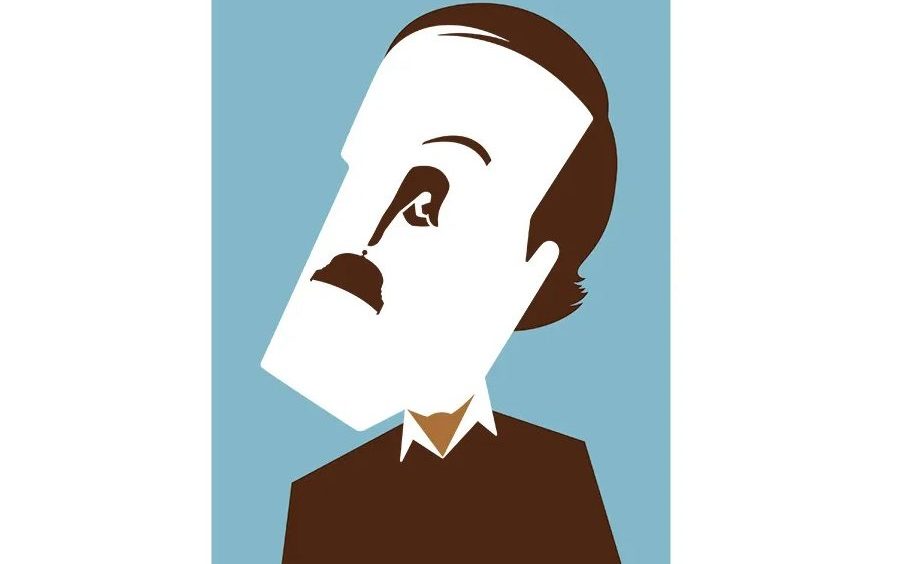







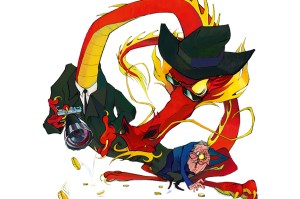





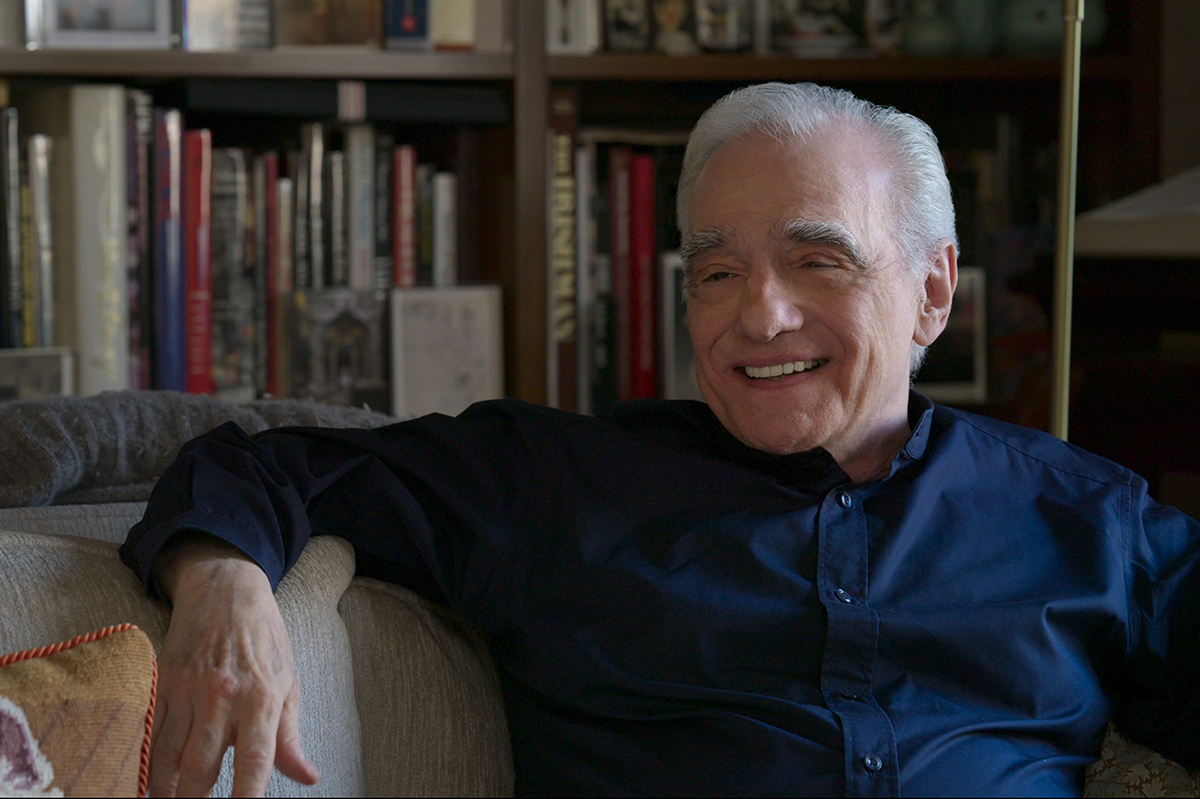








Leave a Reply